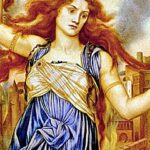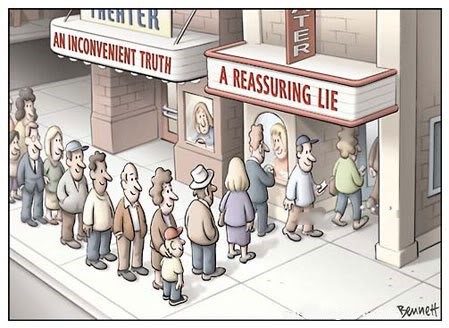The myth of Cassandra and the contempt of the prophets

by Davide Gionco
According to Homer's account (Iliad, Book XIII) Cassandra was the most beautiful of the daughters of Priam, king of Troy. Cassandra had received from the god Apollo the gift of prophecy, the gift of foreseeing the future. Once she received her gift, Cassandra would refuse to give herself to him. The god, beside himself with anger, would spit on her lips, thereby condemning her to remain forever unheard by others.
Cassandra was taken for mad, for a jinx, as she announced the misfortunes that would fall on the city of Troy. It was not taken into consideration, because it announced things that no one wanted to hear.
Once the city of Troy was conquered and destroyed by the Achaeans, Cassandra was kidnapped by King Agamemnon and taken as a hostage to Mycenae. There too he prophesied to the king that there would be a conspiracy against him, hatched by his own wife Clytemnestra, but not even Agamemnon wanted to believe such an unacceptable prophecy. After the conspiracy was carried out by his wife, as foretold, together with King Agamemnon, Cassandra herself was also killed.
Knowing that you are facing an unacceptable fate is something that can lead to despair, which is why our unconscious prefers to reject that information. Since these are facts that have yet to happen, not certain, we prefer to believe that "we hope that it will not happen". And we go on, having as our only support the hope of a better future that does not scare us.
Sigmund Freud would explain that these are irrational impulses, linked to our survival instinct, which leads us in the subconscious to mentally escape what could make us suffer or even die.
The fate of the prophets to be unheard and persecuted is something that recurs in the Bible. For example, the prophet Jeremiah announced to the people that he would be invaded by the "Peoples of the North" (the Babylonians) if he did not convert to Yahweh and change his life.
As happened to Cassandra, Jeremiah too was taken for an "announcer of ill omen", he was not listened to, he was hated and despised and he was put in the grave to make him die.
In much more recent times, between 1933 and 1939 the American journalist Frederick Birchall (1868-1955) wrote as a guest of the New York Times in Europe many articles on the rise of Hitler and Nazism, warning readers and leaders politicians on the extreme danger of the phenomenon. But he was not believed and he was not listened to, because he wrote "unacceptable" things, since no one could accept the idea that Hitler would do what history tells us which was then done by the Nazis.
St. John Bosco (1815-1888) made his boys periodically do the "exercises for a happy death". Today death is the biggest taboo that cannot be discussed. Yet for St. John Bosco, reminding the children that "each of us must die, that we could die tonight" was not to make bad wishes, but to help his children to live in a responsible way the time we are allowed to live. , since we are not masters of our future and that our time will certainly end.
The prophets are not those who predict, for foresight, an inevitable future what the ancient Romans called "fate"), but they are those who know how to read the signs of the times better than others, understanding how things will turn out.
The term "prophet" derives from the ancient Greek προ ϕ ή της , which is the characteristic of one who is conscious, rational, since he discerns everything with "reasoning.
The prophet, therefore, is not someone who announces a fate without escape or who spreads bad luck, but he is a person who announces a future conditioned by our choices, having a full understanding of the present and being aware of how the situation can evolve.
But people don't like to change their habits, because it takes effort and commitment. People don't like to question their choices, because it would mean admitting that they were wrong before and facing all the social and material consequences of changing their decision.
It is even more difficult to admit that we have been deceived by those who convinced us to make a decision that we then realize was wrong.
A wise saying reminds us that " pride dies a quarter of an hour after us ". Rather than giving in to our pride, we prefer to keep our decision, even if the prophet proves us that it is wrong and that it will lead us to consequences that we do not want to face.
People prefer a reassuring lie to the uncomfortable truth of the prophet. And it does so to the point of silencing the prophet in any way: censoring him from the media point of view, excluding him from a social point of view or even physically eliminating him.
Obviously none of us are "the people". We are people able to make our choices, to take note of our mistakes, to understand if the speaker is a prophet or not.
It depends on each of us, if we prefer to conform to the common doing of the people preferring to avoid any mental and psychological effort or if we prefer instead to be people who do not let themselves be overcome by fear and pride. If we want to have the courage to question ourselves and to listen to the prophets who, since world and world, have never been lacking. It is enough to have eyes and ears to recognize them.

Thanks to our Telegram channel you can stay updated on the publication of new articles of Economic Scenarios.
The article The myth of Cassandra and the contempt of the prophets comes from ScenariEconomici.it .
This is a machine translation of a post published on Scenari Economici at the URL https://scenarieconomici.it/il-mito-di-cassandra-e-il-disprezzo-dei-profeti/ on Sat, 07 Aug 2021 16:41:13 +0000.

